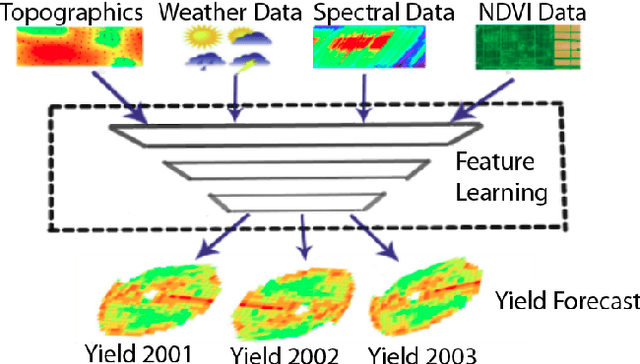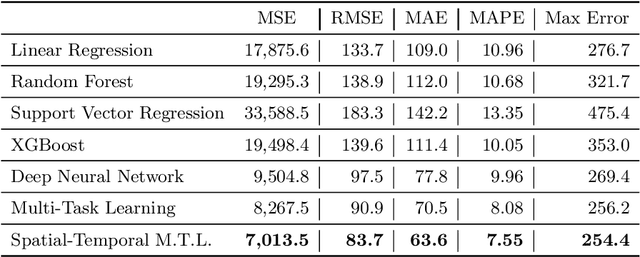Spatial-temporal Multi-Task Learning for Within-field Cotton Yield Prediction
Paper and Code
Nov 16, 2018



Understanding and accurately predicting within-field spatial variability of crop yield play a key role in site-specific management of crop inputs such as irrigation water and fertilizer for optimized crop production. However, such a task is challenged by the complex interaction between crop growth and environmental and managerial factors, such as climate, soil conditions, tillage, and irrigation. In this paper, we present a novel Spatial-temporal Multi-Task Learning algorithms for within-field crop yield prediction in west Texas from 2001 to 2003. This algorithm integrates multiple heterogeneous data sources to learn different features simultaneously, and to aggregate spatial-temporal features by introducing a weighted regularizer to the loss functions. Our comprehensive experimental results consistently outperform the results of other conventional methods, and suggest a promising approach, which improves the landscape of crop prediction research fields.
 Add to Chrome
Add to Chrome Add to Firefox
Add to Firefox Add to Edge
Add to Edge